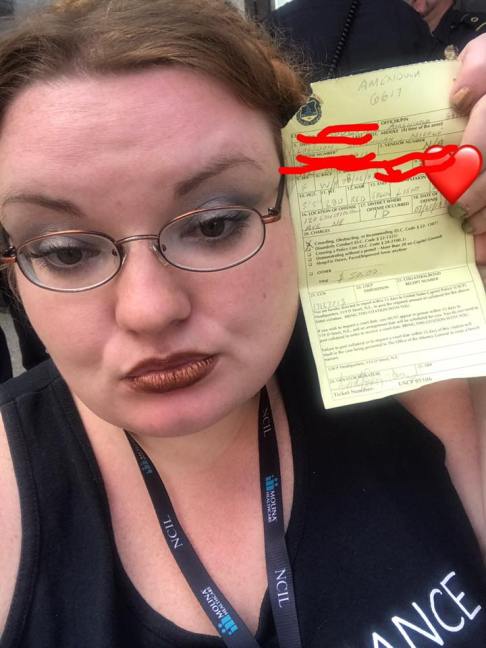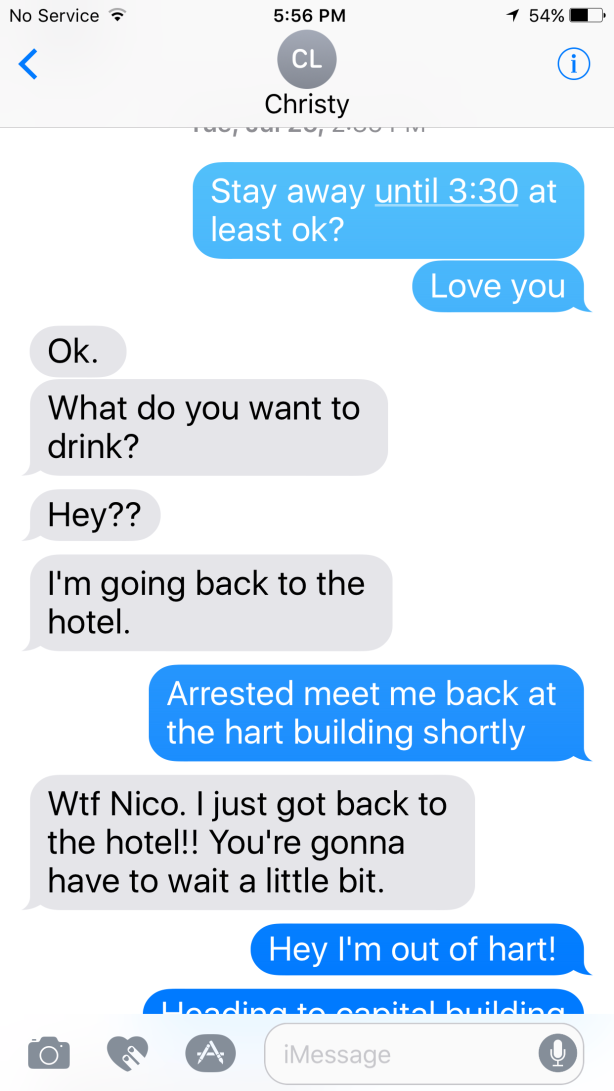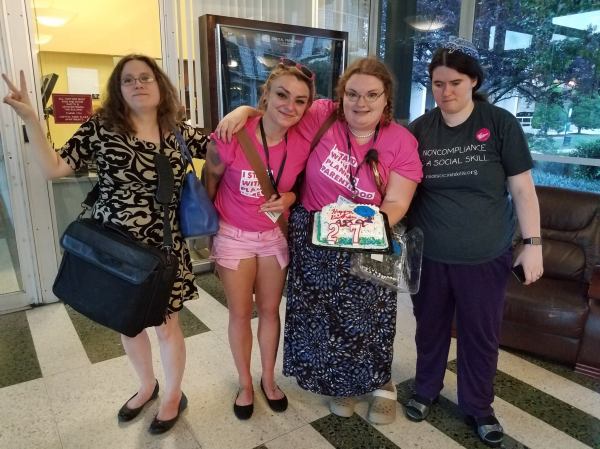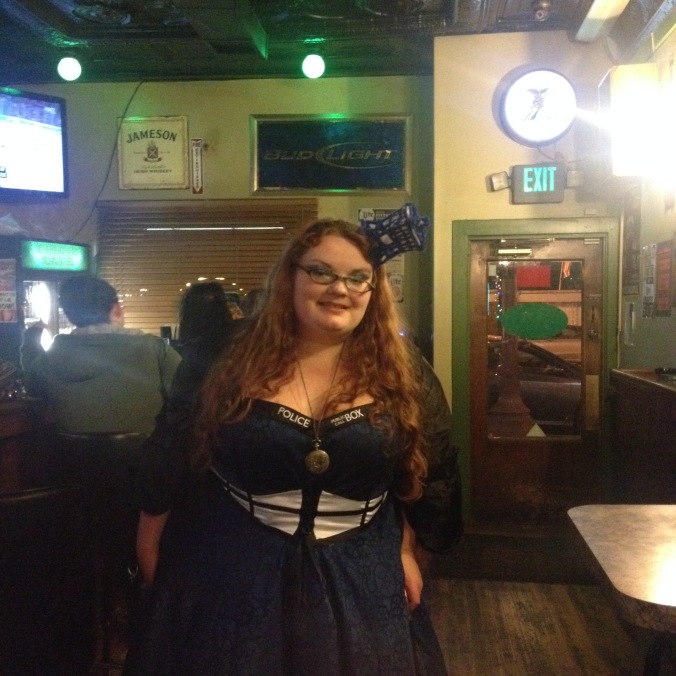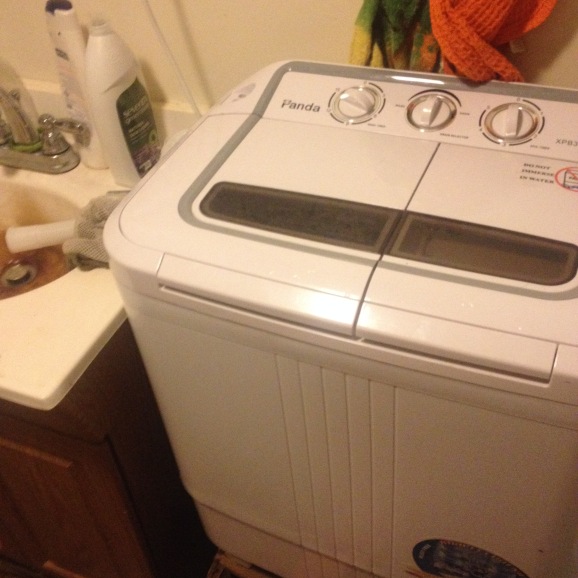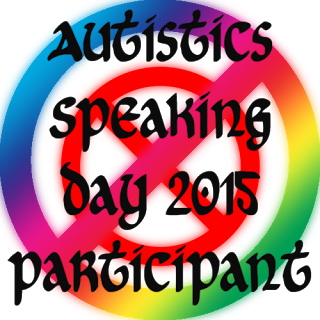This post contains a graphic description of a sexual assault. If you would like to skip that section and go on to a discussion of consent, skip until you are past the picture of the cat. The rest of this post is less graphic but does discuss consent, sexual violence, and consensual sexual contact. If none of this appeals to you, then skip past the cherry blossoms picture to learn about Woodhull, and the shirts we are selling to support us attending it. Thank you.
*********
It wasn’t the first time I had been sexually assaulted. Knowing what it is to be in my body in this world, it likely won’t be the last. I feel like I need to preface this with that, because it’s not even the worst. What it is, though, is an assault that happened at just the right time for me to be segueing into a new career as a peer sex educator after years of policy advocacy.
In February of this year, I was in Chicago visiting my romantic partner and fellow autistic advocate, Timotheus. We had just made the decision that I would be coming off of my birth control pill despite my PCOS, which it was treating, as we want kids in a couple of years when we move in together. It was a pretty great visit up to that night. We were going to a friend’s party where we were dressing up- I was in a golden space kitty outfit and felt cute, and he wore a black panther mask he had picked up.
We’d left our things, including our street clothes, in a bedroom with a bunch of other people’s things. It had been 3 or 4 hours since I’d had anything to drink myself, and I was getting tired. Unfortunately a friend had gotten sick specifically on our things, so when it was time to think about going, I had to re-bag stuff and sort “sick covered” vs “okay.” I left Timotheus in the living room right outside the room talking with some friends to get ready to leave. I couldn’t get the overhead light to work, so it took longer than I’d expected.
I was almost done when a man and his girlfriend came in. They had been watching me most of the evening, but I was looking fabulous so I had thought nothing of it. They came in, her giggly and drunk, him smirking, and closed the door. I can’t remember what exactly he said at first. I know he directed her to get on the bed behind me. I know he kept suggesting I play with them. I know I told them that I was not playing. I said they’d missed any chance to “play” with me. I know I was stiff, polite but disinterested.
I know that he took his penis out. I know I couldn’t bring myself to shout. I know that I pressed my lips together tightly and turned my head. I know that between the two of them, I ended up with his penis pressed against my lips as he groaned out, “I know you want this dick.” I know he pressed through my lips, rubbing the head of his penis against my teeth, trying to find a way further into my mouth. I know he told his girl to take care of my breasts. I know I gasped through my teeth, holding them clenched so his penis wouldn’t get past them, when she took my nipple into her mouth and sucked.
I do not know how long it took. I do know it felt like ages before, realizing they would have to use more force than this to engage with my vulva, he put his penis back into his pants and told her they were done here. They left the room, her giggly and him still jovial, and left the door ajar. I felt frozen and I couldn’t speak for a few minutes. I peered out the door hoping to see Timotheus and when I did I pulled him into the room. Our friend Jimmie came with him. They hugged me and tried to soothe me while I cried and babbled and shook.
When the guy who did this to me appeared, asking if I was okay, I shut down. I know that Timotheus tried to defend me, but I was in a state. I was shifting between the current trauma and something that happened to me when I was younger, which I don’t want to talk about yet. If Timotheus wants to share what happened, he can. If he doesn’t, he doesn’t have to. It was in fact traumatic for him as well. For a while our friends had to split time between both of us. I know the hostess defended me, and everyone except the guy who did it and his girlfriend was supportive of me.
I still remember him shouting in the hall as he got kicked out of the party, “She didn’t say no!”
As if every other action didn’t also scream no, as if politely dismissing him was an enticement. I’m sure if anyone asks him about it, he tells it as if my not saying that particular word somehow made every other word and action irrelevant. That my inability to scream while it happened, my inability to make that specific word happen, that I went into a comparatively non-verbal state while they were doing it, somehow makes him blameless. (It doesn’t.)
The hostess offered to have me make a report, but I couldn’t. I am afraid of cops, and have had a couple of experiences that made me distrust them even before supporting advocacy around police misconduct. That plus the already panicked state I was in, I couldn’t deal with it. I was unable to do much more than shake and cry for hours it seemed. I think I tried to pack up my stuff to leave- I know I’d intended to, to minimize the impact of it on anyone else- but the hostess ended up giving me and Timmy space to sleep over. Which is probably a good thing, I was in too panicked of a state to have been able to drive safely. (Unfortunately, because I didn’t leave that night I got a parking ticket the next morning.)
I felt cold, and no amount of blankets, hot water, or anything else got me warmer. Near dawn, I finally came out of shock and felt warm again, pressed tightly against Timotheus. I then drifted off to sleep.
Timotheus supported me, helped me heal a lot as we supported each other in dealing with what had happened. I hadn’t been vaginally raped, so we didn’t have to worry about the fact that I had gone off birth control recently. He hadn’t penetrated past my teeth, so I didn’t need to worry about a lot of things. The man who did this didn’t even cum so I didn’t have to worry about that either. The hostess was taking care of making sure that he wouldn’t be welcome in our shared social circle, and our other friends in the area were supportive. I’ve been healing relatively well.
*** Kitty Break!***
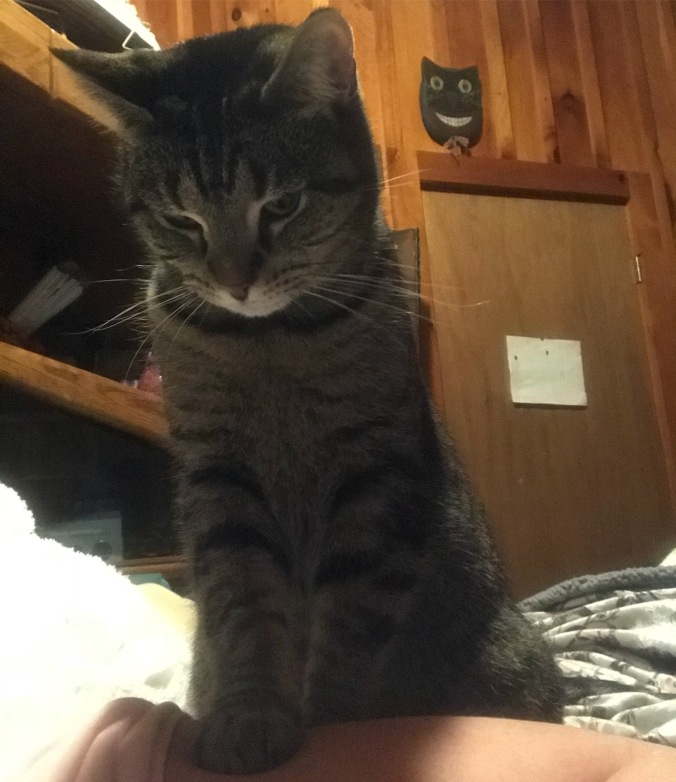
***
We talk a lot in sex education about enthusiastic verbal consent practices. It’s a best practice for sure, but also complicated for those of us who are either situationally, intermittently, or permanently non-verbal, or for those of us who experience aphasia. I don’t think that my inconsistent verbal skills need to mean I can’t engage with people sexually, even when my asphasia and/or my “selective mutism” is kicking in. I don’t think that my friends who are non-verbal but have sexual interests and ways of expressing yes and no should be denied access to their sexuality. I don’t think people who use AAC should be prevented from accessing their sexuality.
There’s a thing that I’ve heard that has stuck with me: If my “yes” is meaningless, if it means nothing to the people who support me, what do they think my “no” is? Are they really able to respect that? What if only my verbal “yes” is acceptable- does that mean that they will ignore my non-verbal “no” unless I give a verbal one? What if they only accept it if I use the right words? What if it’s only when I say no politely, regardless of how I say yes?
These aren’t idle speculations. From my own assault to the assault that those with personal attendants experience and have dismissed as “unintentional,” this is a real issue for disabled people, particularly those of us with cognitive and neurological disabilities. I have friends who have been forcefully showered, had their erogenous zones touched while they flailed and while they sometimes said no, and when it was reported it was reported as THEM having difficult behaviors or being a difficult client, and the staffer who violated their bodily autonomy was “doing their job.” Even if they aren’t attempting to assault someone sexually, they have- and they need to know that they need to learn different ways to get the job done that respect the person’s bodily autonomy. Sometimes it’s a violation that isn’t sexual, like an elder of mine who was made to go to bed at 7pm despite saying no repeatedly and escalating to swearing. She was threatened with losing her provider for that one, which for her would mean going back to the nursing home.
While my no is important to my safety and well-being, so is my yes. I am a sexual person, with sexual preferences, orientation, and needs. Even asexual people have preferences and needs about what kind of intimacy they want, be it sexual, physical, or neither, and with whom. But in my case I am the sexual sort of person. The sexual, queer, polyamorous, autistic sort of person. If I don’t engage sexually, either alone or with partners, my well-being suffers. And as someone who does engage sexually with partners, my yes can be nuanced. My yes might involve specifying barriers, specifying if I’m trying to conceive with a partner, discussing STI statuses and how to stay safe. My yes involves what kind of interaction we need to have after in order for us both to benefit from the experience. My yes involves conveying what I want and don’t want, and later what I liked and didn’t like. My yes is a thing, a process, more than a word even when it is a word.
My yes is not always verbal, and not always words. Sometimes I text or message a partner, ahead of time or while sitting next to them, negotiating consent that way when my voice isn’t putting out what I want. Sometimes we point, we touch, we shake our heads at this or nod at that. We flinch, we surge forward, we freeze and withdraw from touch. Sometimes a series of gifs or emojis conveys an entire conversation. It all depends on the communication needs we each have when the time comes. Sometimes we indicate yes and no, proceed or stop, with one or two words or indications we’ve negotiated ahead of time.
As someone with verbal inconsistencies, who engages sexually with other people who might have their own verbal inconsistencies, we negotiate our own language of consent before we ever engage in the sexual. We learn to trust what works for us before hand so that we can trust each other in the moment. It’s complicated, and messy, and difficult sometimes, but it’s also astoundingly beautiful even when it doesn’t result in sexual engagement. It’s an intimacy of communication, an intimacy that only works if we have trust and consent. An intimacy that is dependent on the people involved, not a specific vocabulary list.
*** Cherry Blossom Break! ***

***
Woodhull’s Sexual Freedom Summit falls on my birthday, August 2nd, this year. The Woodhull Summit is a place where sex educators and advocates come together and share the ideas and practices that they are seeing or developing. I want to go for my birthday, and bring Timotheus with me as my partner, supporter, beloved, and future nesting partner. Washington, DC is miserable around my birthday, but it’s 100% worth it to me. It’s worth it to meet some of the sex educators who are influencing the field and my personal career trajectory. It’s worth it to support my friends who will be there. It’s worth it to get a chance to check out the latest in the field. It’s worth it to network professionally, as I’m segueing into a new career: peer sex educator.
I’ll post more about what this career change means another time. The short version is that I want people to have the tools, information, and access to have the best sexual and reproductive health and the best intimacy, sexual or not, that they can have if they want it. I don’t want lack of information, accessibility, or options to be a barrier. I want to use the creativity that being disabled in this world has coaxed from me to come up with new ideas and troubleshoot access to sexual and intimate health for my fellow disabled people. I want to fight the ways that these things are robbed from us.
With that in mind, I’m running a bonfire campaign for a t-shirt design I made, “Consent is not a Vocab Exam,” inspired by my own experiences around communication and consent. This is a phrase that became powerful to me right after my assault, and has blossomed into so much more. The shirt comes in unisex, unisex v neck, ladies’ cut, unisex tank, ladies’s cut tank, and pull over hoodie. Each cut comes in 5 different colors, and some of the cuts and colors go up to 3X. The least expensive option is the unisex T, but if you can afford and/or prefer the others, they all support Timotheus and I attending Woodhull.
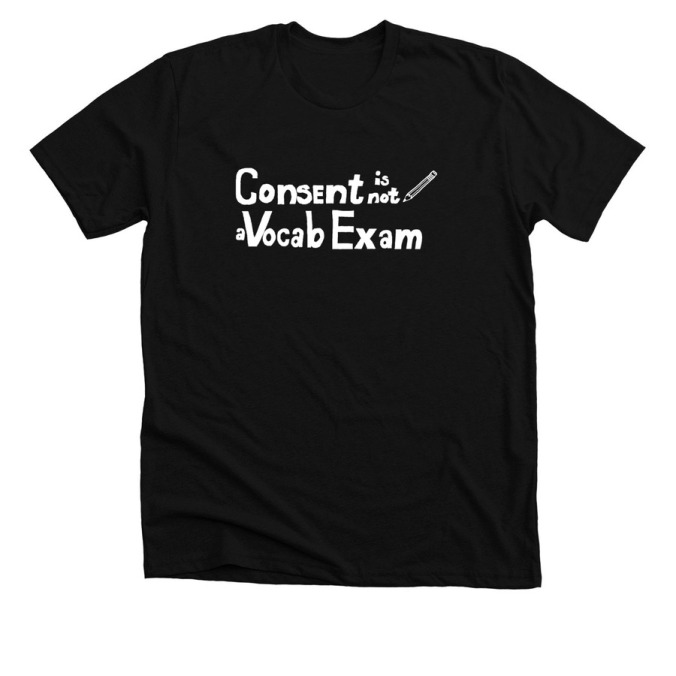
This is the black unisex cut. Each cut comes in 5 different colors though!
Too much of Sexual, Intimate, and Reproductive Health education is cognitively inaccessible, especially for those with cognitive disabilities. We need new strategies, we need new ideas, and we need to make sure that other people in the sexual health field know not only that these issues are important, but that disabled people aren’t going to let these issues get ignored, sidelined, or talked over by our families.
You also have the option of donating money through the Bonfire campaign, though I’d prefer if you got a shirt- if not for you then for someone you love. You can also paypal me money with a note that it’s for Woodhull, and I will set it aside for that. I’ll be launching some other fundraisers too- probably another t-shirt, and if I can get back into my gofundme account one of those. I’ll also be making a post with a breakdown of expenses, and in that I’ll have some rewards listed.
***
Action Steps:
You can follow Timotheus here: Black Autist Twitter, Timotheus Gordon Jr Twitter, Black Autist Facebook page, Timotheus Gordon Jr Facebook page, and The Black Autist blog on Tumblr. He will be posting a companion piece about how the assault and its aftermath effected him, and about processing that experience as a supportive partner of someone who was assaulted in the next room at some point.
Follow Woodhull and learn more about them on the Woodhull Twitter, the Woodhull Facebook page, the Woodhull Sexual Freedom Summit Facebook page, and the Woodhull Sexual Freedom Summit website.
Learn about Bonfire, and buy a “Consent is not a Vocab Exam” shirt!
